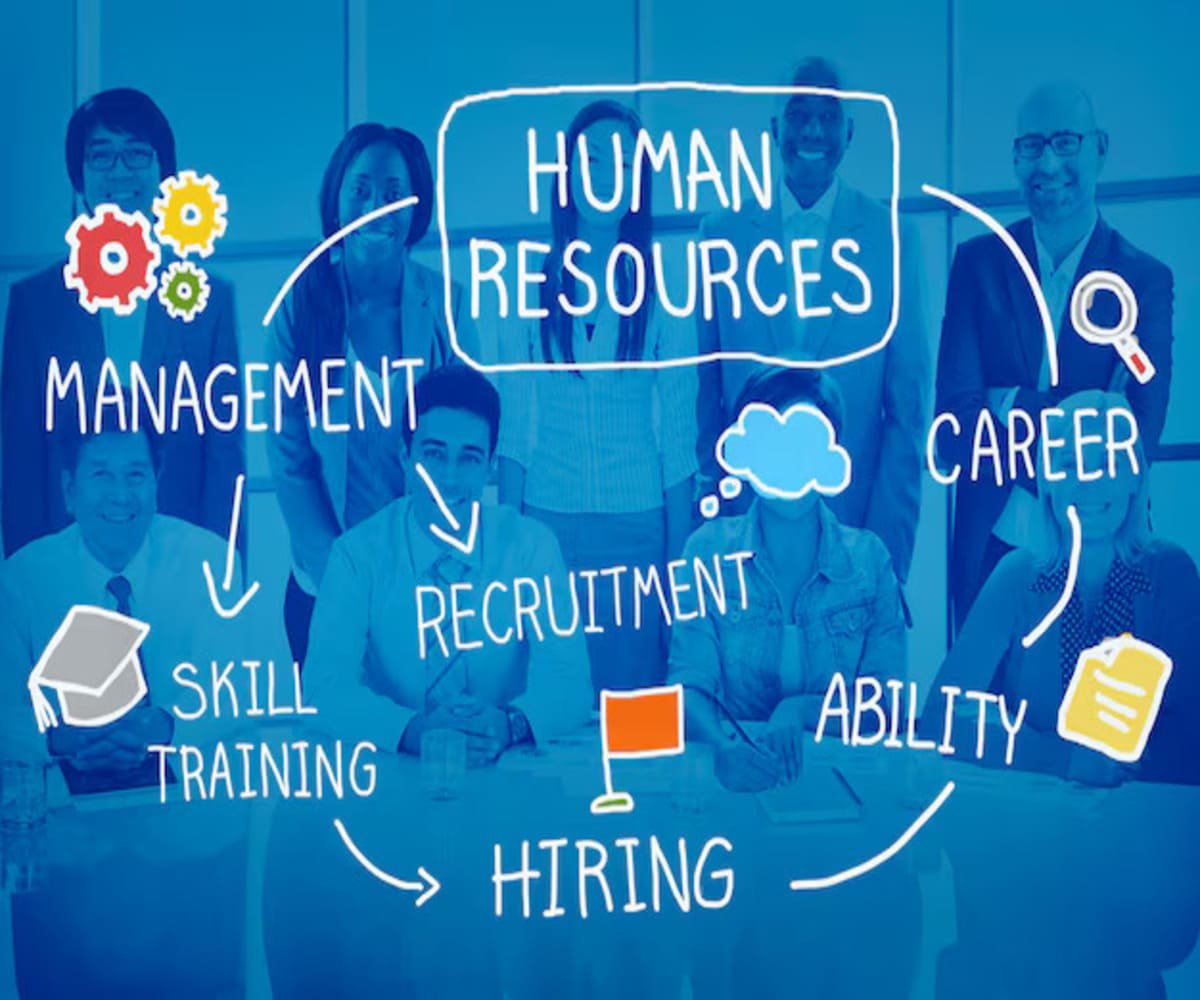Introduction to Human Resource Management (HRM)
Human Resource Management (HRM) is the strategic approach to managing people within an organization. The primary goal of HRM is to maximize employee performance and ensure that an organization is able to meet its objectives effectively and efficiently. In today’s rapidly changing business landscape, HRM plays a pivotal role in driving organizational success, fostering a positive work culture, and ensuring legal compliance.
At its core, HRM involves managing various employee-related functions, such as recruitment, training, performance management, compensation, and employee relations. This comprehensive guide will delve into the key components of HRM, offering foundational insights into each area.
Core Functions of Human Resource Management
1. Recruitment and Selection
Recruitment and selection are among the first steps in building a successful workforce. HR professionals are responsible for attracting and selecting the best candidates for open positions. This process involves:
- Job Analysis: Understanding the requirements of the job role and the skills needed.
- Sourcing Candidates: Using job boards, social media, and other channels to reach a wide pool of candidates.
- Interviewing: Conducting structured interviews to assess a candidate’s qualifications, skills, and fit for the company culture.
- Selection: Choosing the candidate who best matches the organization’s needs.
Effective recruitment is crucial for ensuring that the organization has the talent it needs to succeed and grow.
2. Onboarding and Employee Integration
Onboarding is the process of introducing new hires to the company and helping them integrate into the organization. A structured onboarding program sets the stage for a positive experience and ensures that employees feel supported. Key components of successful onboarding include:
- Orientation Sessions: Providing an overview of the company’s policies, culture, and mission.
- Training Programs: Offering role-specific training to help employees succeed in their positions.
- Mentorship: Pairing new hires with experienced employees who can provide guidance and support.
Proper onboarding leads to higher employee satisfaction, retention, and productivity.
3. Compensation and Benefits
One of HR’s critical roles is to design competitive compensation and benefits packages that attract and retain top talent. Compensation and benefits are not just about salaries; they encompass:
- Salary Structures: Creating fair and equitable pay scales based on roles, experience, and market standards.
- Incentives and Bonuses: Offering performance-based incentives to motivate employees.
- Benefits: Providing benefits like health insurance, retirement plans, paid time off, and other perks that enhance the employee experience.
An attractive compensation package is a key factor in employee satisfaction and retention.
4. Performance Management
Performance management involves setting clear expectations, providing feedback, and assessing employee performance over time. Key components of performance management include:
- Goal Setting: Establishing SMART (Specific, Measurable, Achievable, Relevant, Time-bound) goals for employees to ensure alignment with company objectives.
- Continuous Feedback: Offering regular feedback to guide employees toward improvement and growth.
- Performance Appraisals: Conducting periodic reviews to assess employee contributions and identify areas for development.
Effective performance management leads to improved employee productivity and helps identify high performers within the organization.
5. Employee Relations
Maintaining positive employee relations is essential for a harmonious work environment. HR professionals play a key role in managing workplace conflicts, addressing grievances, and ensuring fair treatment. Key strategies include:
- Conflict Resolution: Addressing workplace disputes promptly and fairly to prevent them from escalating.
- Employee Engagement: Creating a work environment where employees feel valued, respected, and motivated.
- Employee Satisfaction Surveys: Gathering feedback from employees to identify areas for improvement and strengthen the employer-employee relationship.
A strong employee relations strategy leads to higher job satisfaction and a more productive workforce.
6. Labor Laws and Ethical Practices
HR professionals must ensure that the organization complies with all relevant labor laws and ethical guidelines. This includes understanding:
- Employment Contracts: Drafting legally sound contracts that outline employee rights and responsibilities.
- Workplace Safety: Ensuring that the workplace adheres to health and safety regulations.
- Non-Discrimination Policies: Promoting a diverse and inclusive environment free from discrimination based on race, gender, age, or other protected characteristics.
Compliance with labor laws and ethical practices not only protects the organization legally but also fosters trust and respect among employees.
Why HRM Fundamentals Matter
Mastering the fundamentals of HRM is crucial for anyone pursuing a career in human resources. HR professionals who understand these core concepts are better equipped to:
- Attract top talent and create effective recruitment strategies.
- Design comprehensive onboarding programs that enhance employee retention.
- Implement performance management systems that drive employee growth and success.
- Maintain a healthy workplace culture through positive employee relations.
- Ensure legal compliance to avoid costly legal issues and ensure fairness in the workplace.
A strong HR foundation is key to building a motivated, engaged, and high-performing workforce.
Conclusion
Human Resource Management Fundamentals provide the essential knowledge and skills needed to succeed in the HR field. By understanding recruitment, employee relations, performance management, and compensation, HR professionals can help organizations thrive. Whether you’re new to HR or seeking to strengthen your existing knowledge, mastering these fundamentals will lay the foundation for your success.
For a deeper dive into Human Resource Management Fundamentals, enroll in SignifyHR’s HRM Experts Course, where we offer comprehensive training and practical insights to help you excel in your HR career.

